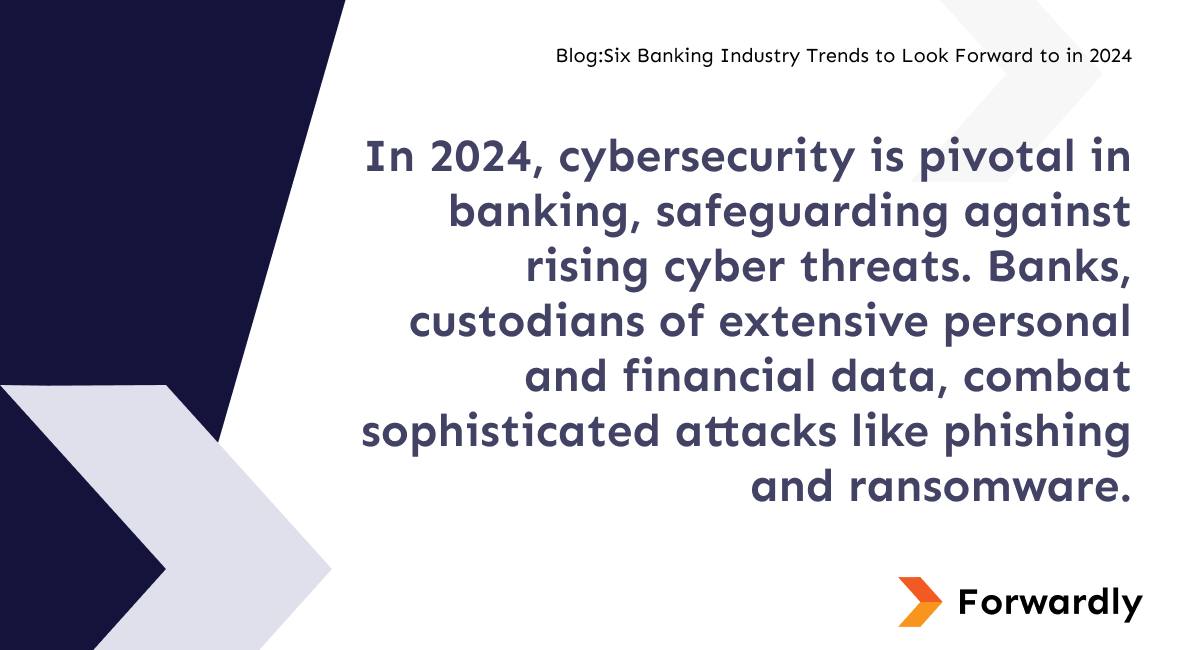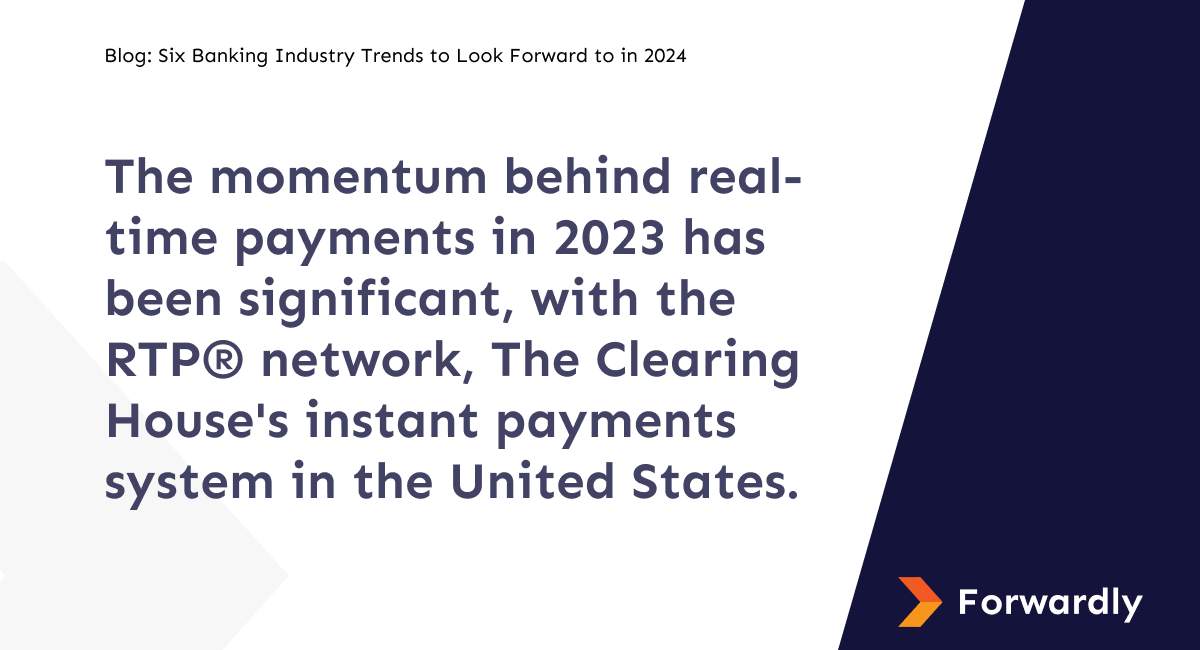Originally published on BAI.
Banking industry trends as seen in the crystal ball are advances in open banking, more real-time payment options, proliferation of fintech tools, cybersecurity, a greater focus on SMBs, and banking process automation.
The new year is setting up to be an exciting one, with major movement on essential regulations, competition entering the instant payments market, and a renewed focus on small businesses that need all the help they can get amid supply chain disruptions and skyrocketing inflation.
6 banking industry trends to gain momentum in the U.S. in 2024
Open banking
In the coming year, 2024, open banking is changing worldwide. Some regions, like the UK and EU, are really into it with rules. Others, like the U.S., are not so much, but that might change soon with new rules from the Consumer Financial Protection Bureau (CFPB). Open banking stands as a catalyst, empowering consumers and driving innovation and competition. It enables secure sharing of financial data through APIs, emphasizing control, data portability, and third-party access. Regulatory frameworks, such as the EU’s PSD2, form the backbone of responsible open banking practices. As open banking grows, new businesses around the world are joining in.
Real-time payments
The momentum behind real-time payments in 2023 has been significant, with the RTP® network, The Clearing House’s instant payments system in the United States, achieving a noteworthy milestone on September 1—surpassing one million daily payments.
The FedNow Service, which launched in July 2023, is expected to grow in the future. The Federal Reserve wants all 9,000+ banks and credit unions in the U.S. to join the FedNow Service network. This move is aimed at making instant payments available to businesses and people all over the country.
This shift to instant payments is a big change in how we handle money. The RTP® Network and the FedNow Service are working together to make sure that paying and getting paid happens quickly, easily, and securely for everyone. It’s like moving towards a future where fast and safe money transactions are just a normal part of our lives.
Small-business focus
Small and mid-sized businesses are the bedrock of the American economy, but they are often overlooked and underserved by large financial institutions, many of which are outfitted with legacy tech stacks that limit the agility and specialized care that has allowed fintechs to succeed in the space.
Banks and credit unions must regard fintechs as collaborative partners rather than disruptive competitors. Supply chain interruptions and high inflation have some businesses in a tight spot. Banks with small business clients should consider expanding their roster of value-added offerings by teaming up with fintechs to streamline essential small business services like:
Cash flow-based lending: APIs can help lenders look directly at an applicant’s accounting and cash flow history to make better lending decisions.
Cash-flow forecasting: SMBs can use historical data to predict money inflows and outflows over various periods, and test different scenarios to identify potential gaps and solutions.
Auto-reconciliation: Bookkeeping can be streamlined with APIs that push banking data into an SMB’s accounting system for real-time information.
Proliferation of fintech tools
Technology has made business administration and banking easier, especially for those whose budget and capacity are tight. Whether to manage payroll and benefits, track employee expenses or chase invoices and payments, there’s a range of niche tools and services that can elevate a business.
For example, consider Gusto, which simplifies human resources functions by automating taxes and workers’ compensation and helping with health benefits and employee 401(k) accounts. Why spend precious resources doing administrative tasks when a bevy of fixes are readily available?
One of the reasons small businesses don’t use solutions like Gusto is that they don’t know they exist. Banks and fintechs need to better educate their clients about the usefulness of these kinds of tools through seminars, value-added services and devoted client relationships to increase adoption that translates to revenue and innovation.
Cybersecurity in banking
In 2024, cybersecurity will be pivotal in the banking industry trend, safeguarding against rising cyber threats. Banks, custodians of extensive personal and financial data, combat sophisticated attacks like phishing and ransomware. Navigating strict regulations and legacy systems, they prioritize risk assessments, multi-layered security, and employee training.
Technologies such as AI, blockchain, and biometric authentication fortify defences. Challenges include phishing attacks, data privacy, insider threats, and third-party risks. Future trends feature quantum computing threats, zero-trust security, cyber threat intelligence, and advanced authentication. As our financial world becomes more digital, cybersecurity is the glue holding everything together.

Banking process automation
Banking process automation, driven by technologies like AI and RPA, will be reshaping the financial sector in 2024. Streamlining tasks from customer onboarding to compliance reporting, it boosts efficiency, cuts costs, and enhances customer experiences. Despite challenges like integration complexity and data security concerns, its benefits—faster operations, reduced errors, and improved compliance—are substantial. Looking forward, advanced AI integration, blockchain for smart contracts, wider RPA adoption, and the rise of Regulatory Technology signal a future where automation continues to be pivotal.
Riding the wave
For most of these banking industry trends, the train is already in motion — all that’s left is for it to arrive at the station. While the government pushes onward on two tracks with FedNow and open banking, fintechs, and financial institutions will drive forward with a collaborative spirit that benefits small businesses and gives them the tools to succeed in an increasingly volatile economy.
Originally published on BAI.
 Back to Blog
Back to Blog



